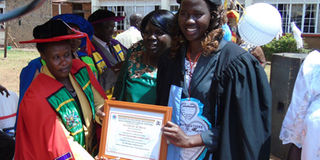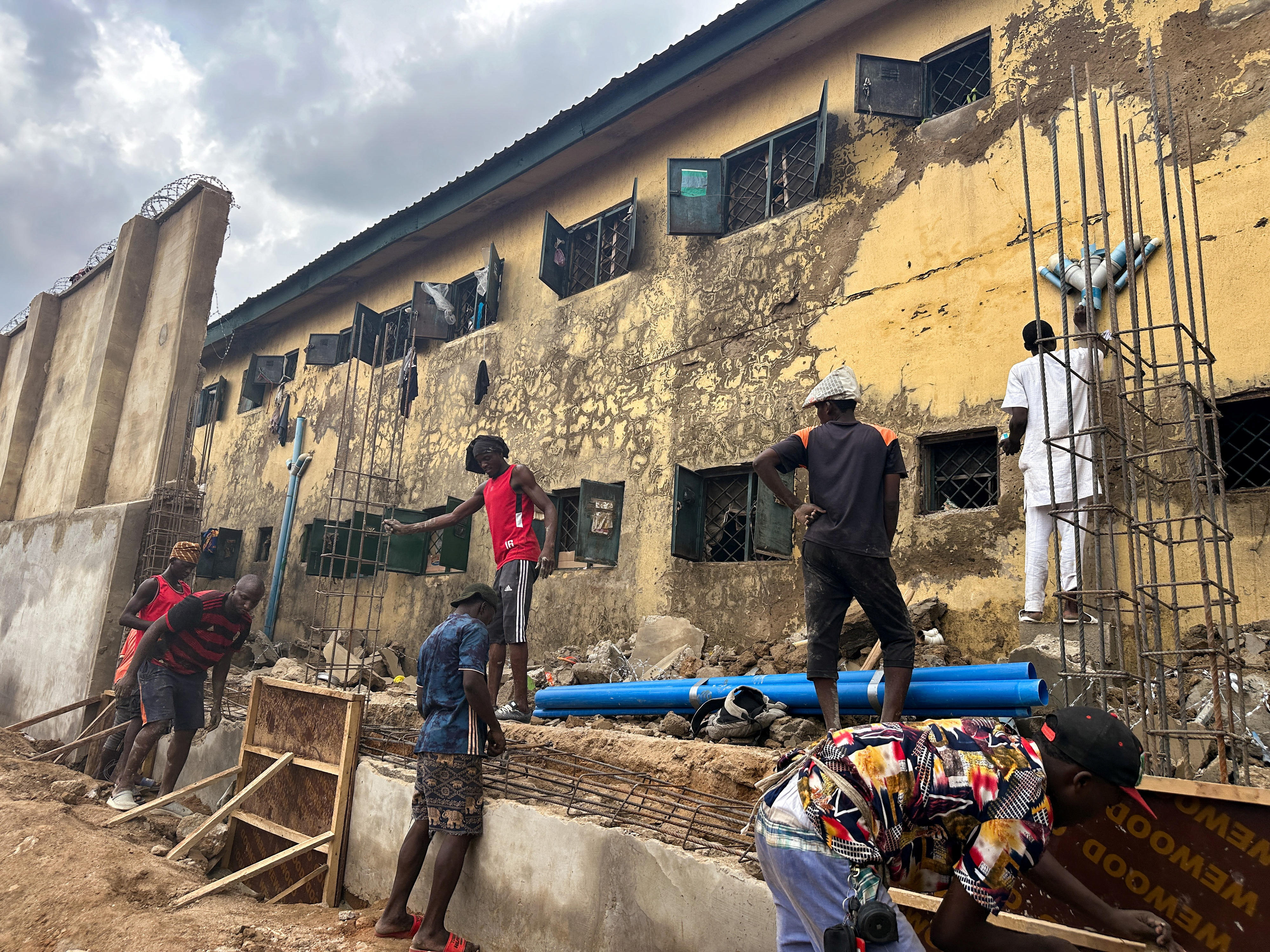Govt to overhaul medical curriculum, says Alupo

Education minister Jessica Alupo (L) awards a certificate to one of the best students at Gulu Clinical Training School last Friday. PHOTO BY JAMES OWICH
What you need to know:
Effective system. The move is aimed at producing professional medical workers who can compete favourably in the job market
Gulu.
The current curriculum for medical schools across the country will be overhauled to match the current technological changes, the Minister of Education, Ms Jessica Alupo, has said.
Speaking at the fourth graduation ceremony for clinical officers at the Gulu Clinical Officers Training School last Friday, Ms Alupo said the ministry of Education in conjunction with their Health counterparts would engage the National Curriculum Development Centre (NCDC), to draw a new curriculum. She said the reform was necessary if the country is to produce professional medical workers who can compete favourably in the current job market.
“Those who have attained training as clinical officers should have the necessary skills as the medical profession advances with change in the modern technology,” Ms Alupo said.
Currently, government has committed Shs2.2 trillion in improving training of professionals in relevant disciplines such as teaching, medicine and midwifery. The chairperson of the Uganda Allied Health Examinations Board, Mr Stephen Rwandembo, said the current curriculum is outdated and must be dropped.
He said those trained in handling precious human life should be equipped with the skills considering the change being experienced in medicine.
“Like vehicle mechanics, medical workers should move at the same pace as technology changes. Currently, the country is using curriculum developed by the colonial masters,” Mr Rwandembo said.
Ms Jennifer Grace Aninge, the principal of Gulu Clinical Officers Training School, welcomed the move by government, adding that the new curriculum will produce quality medical workers.
The changes
According to the Ms Alupo, the new curriculum will require that medical students spend 70 per cent of their training in patient wards, 15 per cent in the laboratories and 15 per cent in the lecture rooms.




